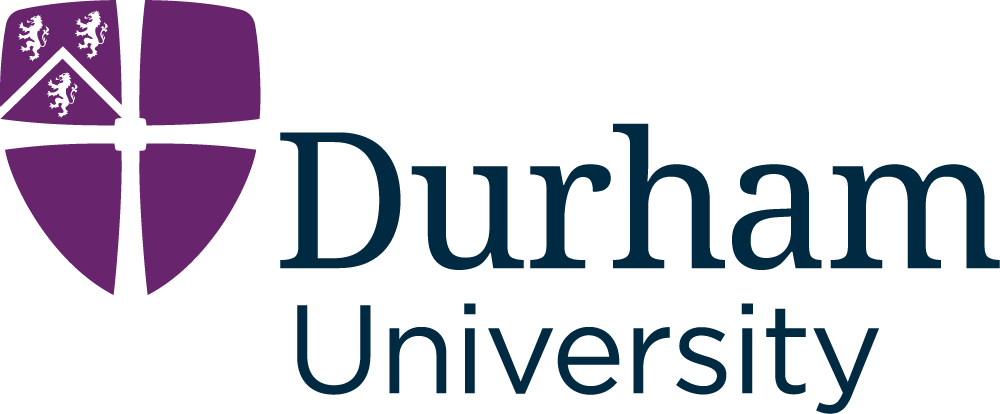

2023 LMS Invited Lecture Series @ Durham, UK
17-21 July 2023



2023 LMS Invited Lecture Series @ Durham, UK
17-21 July 2023

The 2023 LMS Invited Lecture Series will be given by Prof. Filippo Santambrogio (Université Claude Bernard - Lyon 1). This will be a 10h mini-course on the modern theory of optimal transportation, which aims to give a thorough introduction from its basics to recent and exciting new developments. The mini-course will be designed to be accessible to PhD students and young researchers.
The tentative programme includes the following topics:
Each topic above will be (briefly) introduced in a separate lecture, accompanied by lists of references (so that the interested participants may study further these individual topics).
Furthermore, the lecture series will be supplemented by additional talks given by experts in the field, covering a range of applications. One afternoon will be dedicated to a poster session, where participants are encouraged to present their research results in connection to optimal transportation.
In this talk I will discuss an application of optimal transport theory in materials science. The microstructure of metals and foams is often modelled using generalised Voronoi diagrams (Laguerre diagrams or anisotropic power diagrams). The challenge is to generate realistic geometric models with prescribed statistical properties, such as the distribution of cell volumes and shapes. I will describe how this can be done using recent results from optimal transport theory. This is joint work with researchers from Tata Steel Research & Development, Heriot-Watt University, University of Glasgow, Ghent University, and Inria.
In this talk we focus on an indeterminacy estimate, which relates the measure of the interface between a positive density and a negative density having the same total mass with the cost of transporting one mass into the other. This type of estimate, introduced by Sagiv and Steinerberger, is useful in some different situations. We first go through the main ideas to prove the estimate then we see its applications.
We study the following question: for an energy defined on maps from a space X to a space Y, how can one lift it up as a function from X into P(Y) the probability distributions over Y? Looking at a measure valued maps can be interpreted as knowing a classical map with uncertainety, and from an optimization point of view the main gain is the convexification of Y into P(Y). We will explain why trying to single out the largest lifting amounts to solve an optimal transport problem with an infinity of marginals, which can be interesting by itself. Moreover we will explain why, to recover previously proposed liftings for functionals like the Dirichlet energy, one needs to add conditions of localisation and additivity of the lifted functional.
We study discretisation of generalised Wasserstein distances with nonlinear mobilities on the real line via Riemannian metrics on the space of N ordered particles, a setting which naturally appears in the framework of deterministic particle approximation of partial differential equations. In particular, we provide a Gamma-convergence result for the associated discrete metrics (as the number of particles tends to infinity) to the continuous one and discuss applications to the approximation of one-dimensional conservation laws (of gradient flow type) via the so-called generalised minimising movements (or JKO scheme). We aim this work to be the first of a series trying to shed new lights on the interplay between generalised gradient-flow structures, conservation laws, and Wasserstein distances with nonlinear mobilities. This is a joint collaboration with S. Di Marino and L. Portinale.
Semi-supervised learning (SSL) is the problem of finding missing labels from a partially labelled data set. The heuristic one uses is that “similar feature vectors should have similar labels”. The notion of similarity between feature vectors explored in this talk comes from a graph-based geometry where an edge is placed between feature vectors that are closer than some connectivity radius. A natural variational solution to the SSL is to minimise a Dirichlet energy, built from the graph topology. And a natural question is to ask what happens as the number of feature vectors goes to infinity? In this talk I will give results on the asymptotics of graph-based SSL using an optimal transport topology. The results will include a lower bound on the number of labels needed for consistency.
Registration to this event is free but was required in order to attend it.
The registration to the event is closed now. This will be a fully in person event.| Time | |||||
|---|---|---|---|---|---|
| Monday | Tuesday | Wednesday | Thursday | Friday | |
| 9h30-10h30 | Registration | Emanuela | Hugo | Sara | Matthew |
| 10h30-11h00 | Coffee | Coffee | Coffee | Coffee | Coffee |
| 11h00-12h00 | Filippo | Filippo | Filippo | Filippo | Filippo |
| 12h00-14h00 | Lunch | Lunch | Lunch | Lunch | Lunch |
| 14h00-15h00 | Filippo | Filippo | Filippo | Filippo | Filippo |
| 15h00-15h30 | Coffee | Coffee | Coffee | Coffee | Departure |
| 15h30-17h30 | David (only 1h) | Posters | Discussions | Discussions |